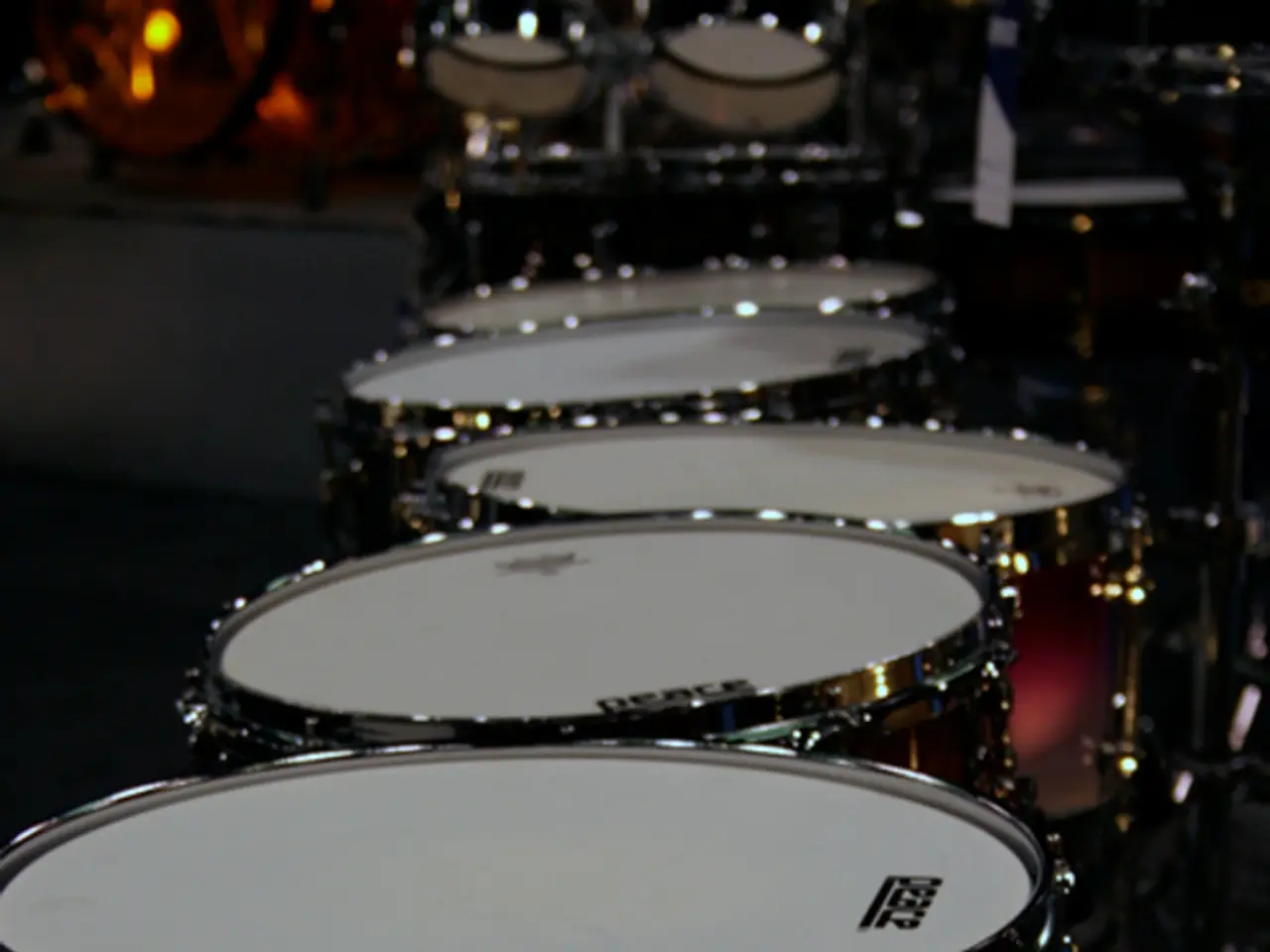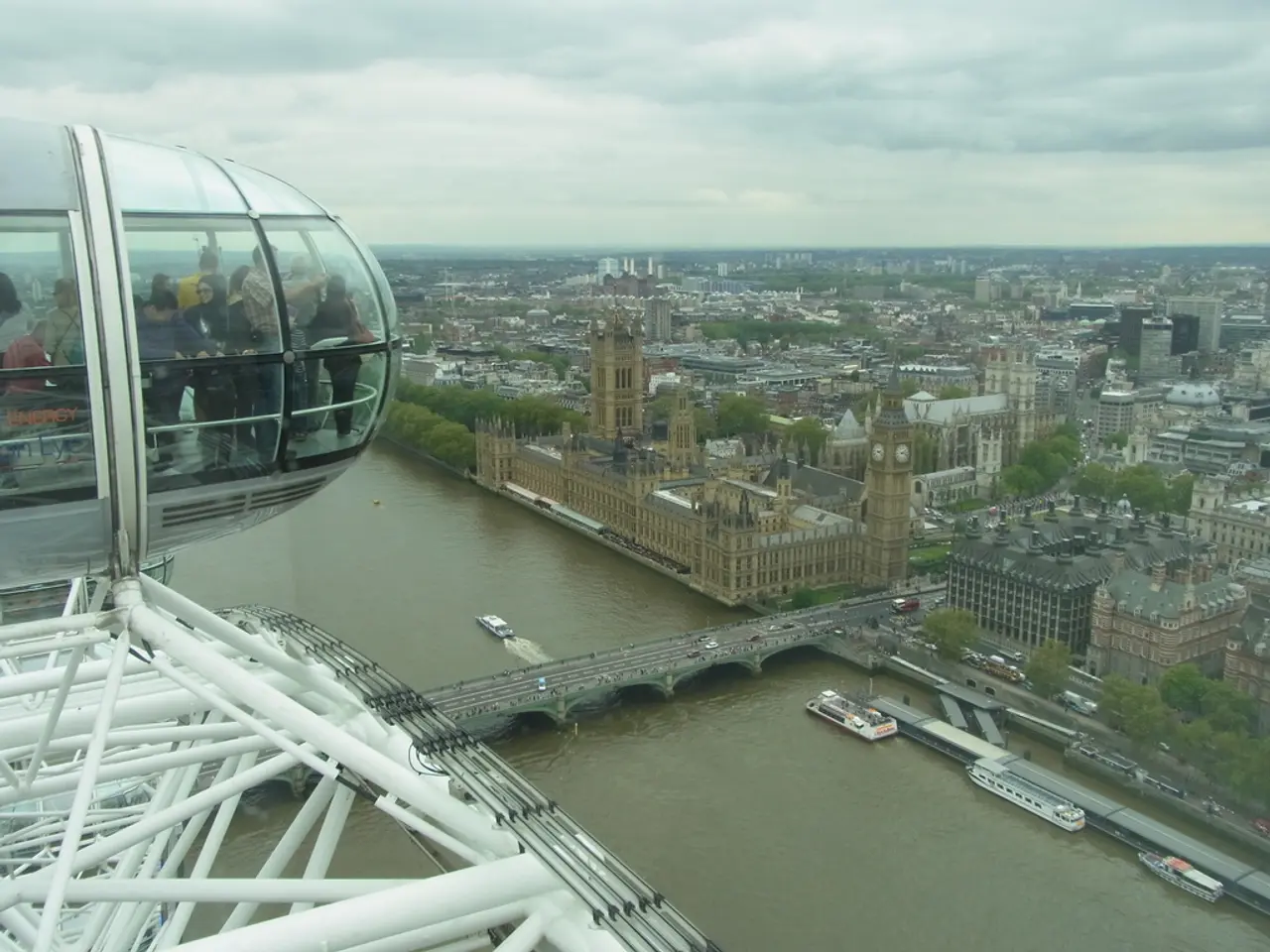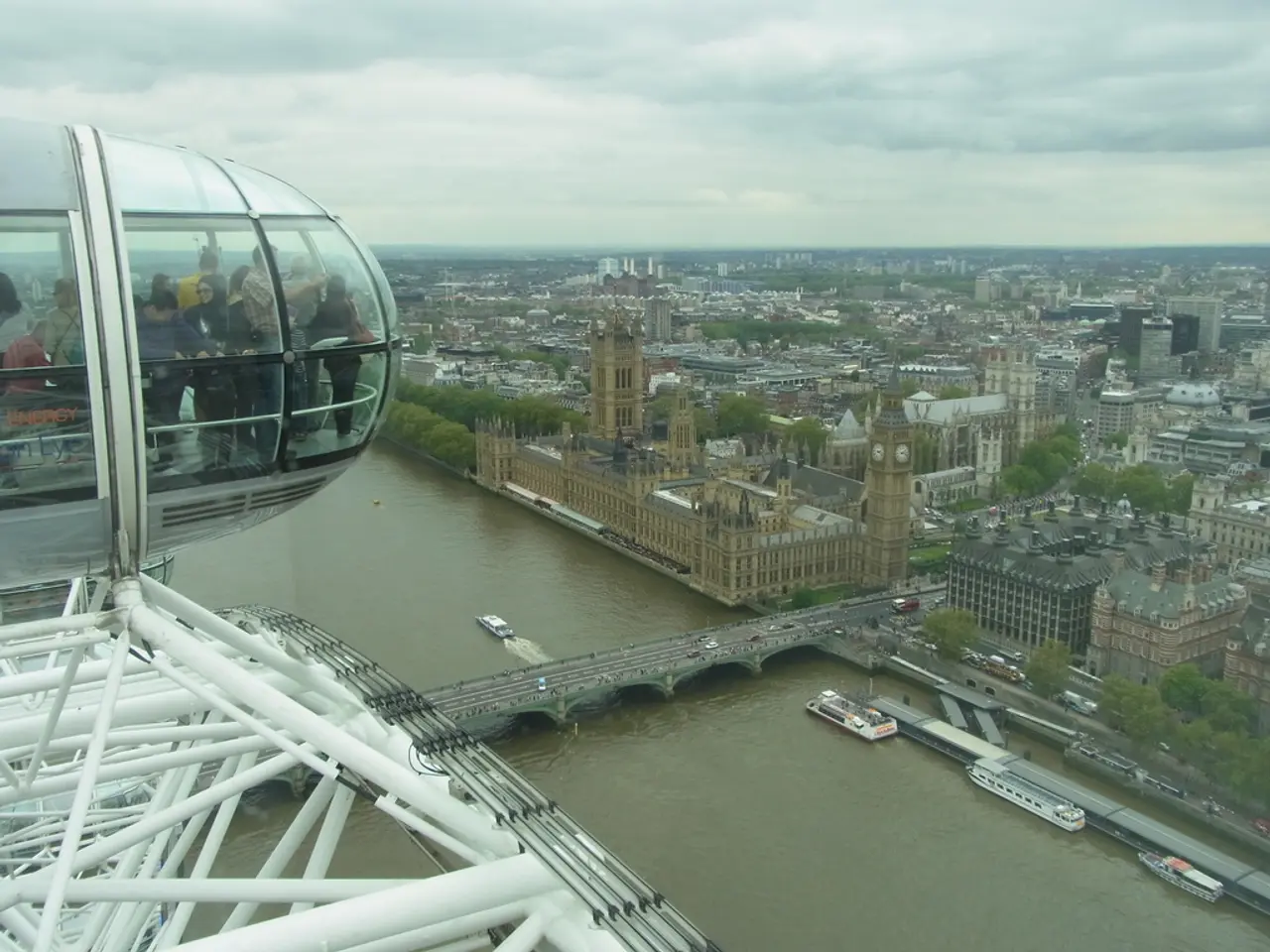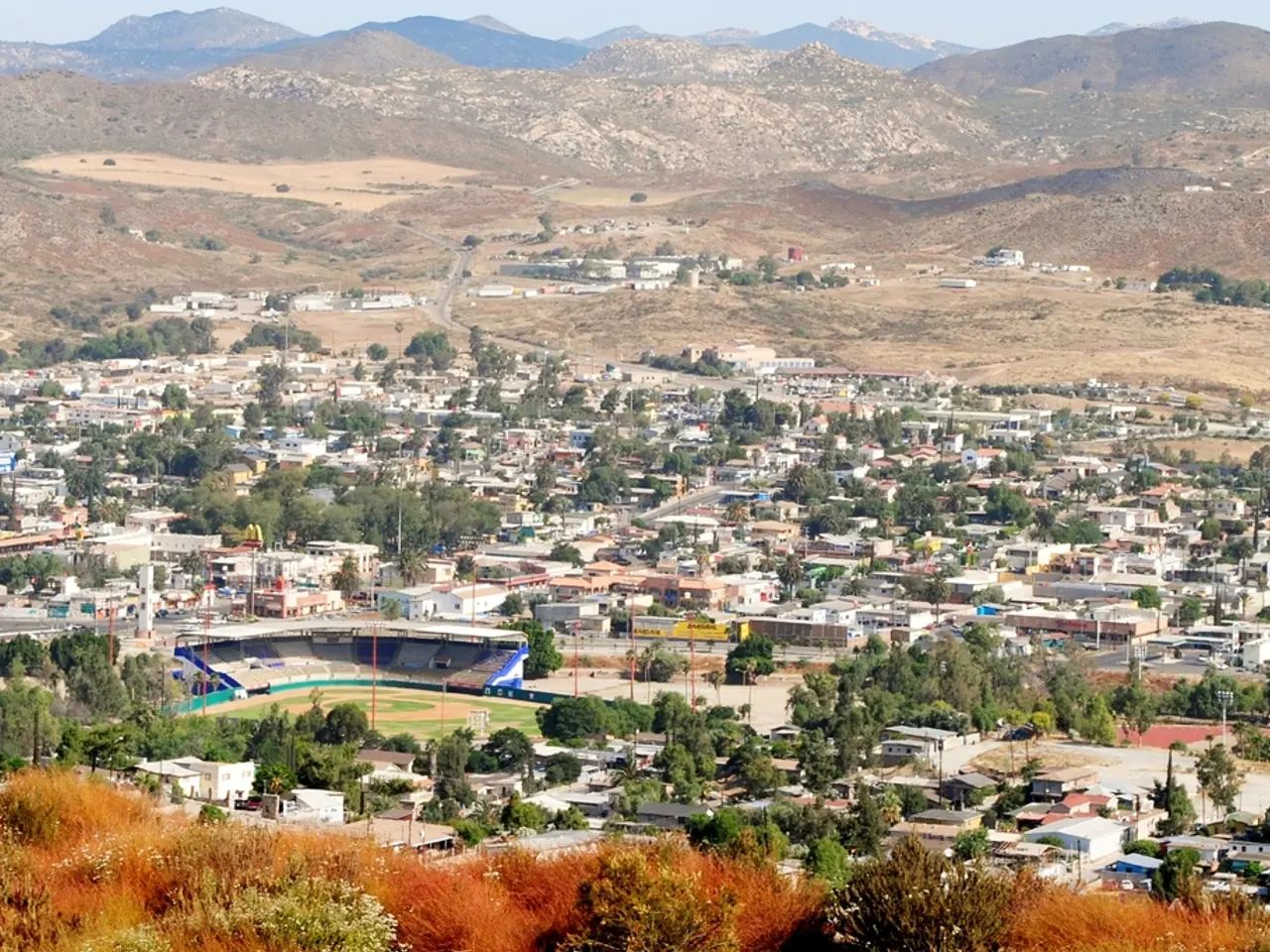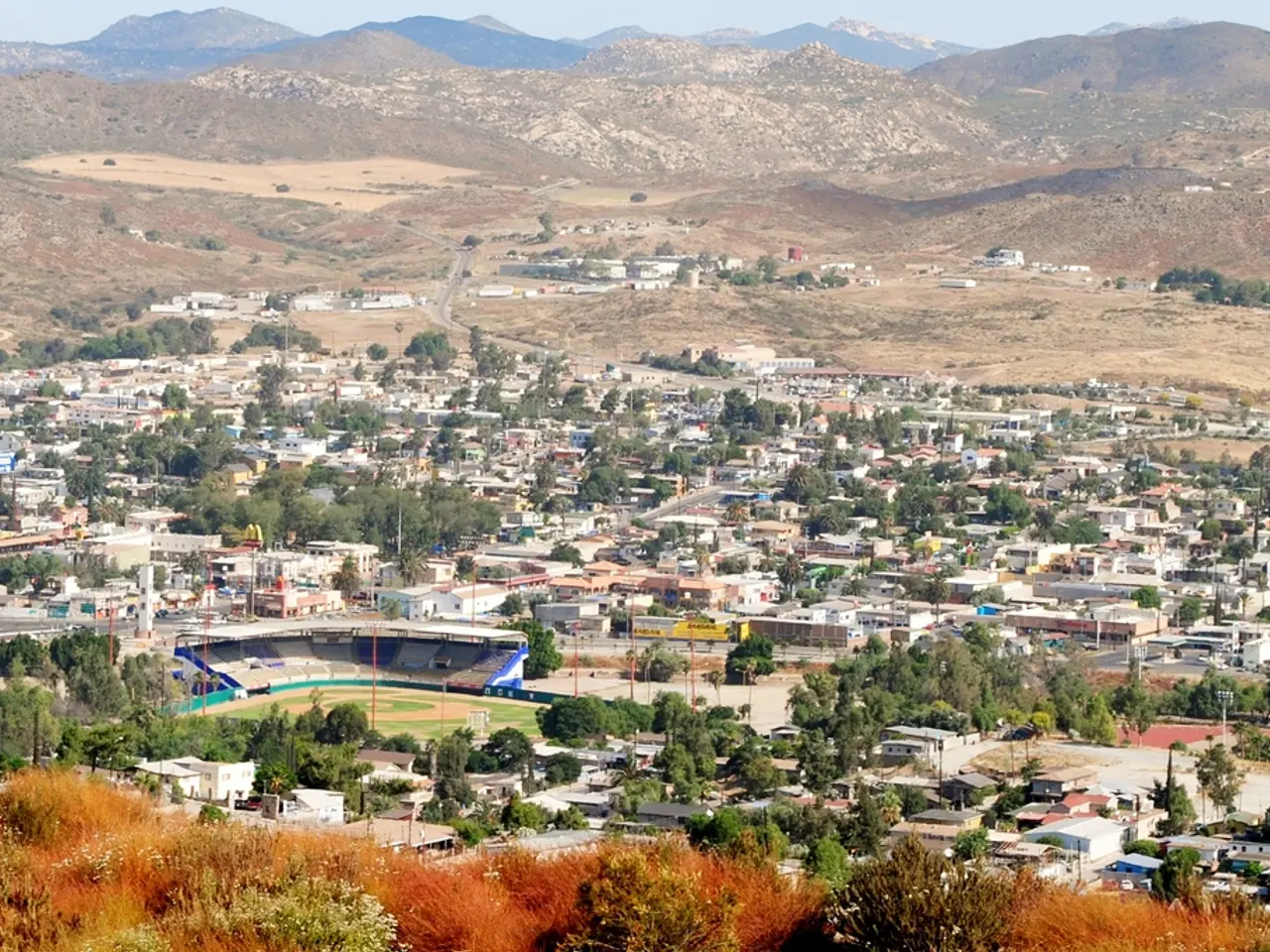Trump contemplates covert strategies for classifying marijuana as less hazardous
Federal Government Considers Softening Marijuana Restrictions Under Trump's Second Term
In a potential shift from traditional conservative stance, the federal government is actively considering reclassifying marijuana from a Schedule I to a Schedule III drug under President Trump's second term[1][2][3][5]. This move would ease federal restrictions on cannabis without full legalization, reflecting Trump's curiosity about medical marijuana and acknowledgement of both positive and negative views on cannabis.
The proposed reclassification would recognize marijuana as having "moderate to low potential for physical and psychological dependence," unlike Schedule I drugs, which are classified as having "no currently accepted medical use and a high potential for abuse"[3]. This shift follows lobbying from cannabis businesses and fits into a strategic political approach ahead of midterms, as Trump seeks to appeal to voters by embracing a health issue traditionally associated with Democrats[2][4].
However, the administration continues to send mixed signals, as Trump simultaneously emphasizes "cleaning up" crime in major cities, which contrasts with loosening marijuana laws. This reflects the complex balancing act in messaging as the administration navigates drug policy reform amid upcoming midterm elections[3].
The move to reclassify marijuana has significant implications, including potential interstate cannabis trade and economic benefits. However, there remain concerns and debate within the administration about the social impacts of marijuana[6]. Proponents argue that reclassification would open research opportunities, create jobs, and give clarity to millions of patients in states that have legalized medicinal marijuana[7]. On the other hand, some policy advisers caution that the moral and legal ramifications of loosening marijuana restrictions could outweigh the potential gains and even backfire politically[8].
As of August 2025, a decision on this matter is expected within weeks[1][2][3][5]. The White House has spent months researching whether and how to move ahead with reclassifying marijuana, and President Joe Biden called the move a "monumental" and "major step"[9]. However, momentum for reclassifying marijuana stalled, and Biden left office before the rule could be finalized[10].
Notably, Trump discussed the topic of marijuana with pro-pot rapper Joseph Edgar Foreman (Afroman) at the Libertarian Party Convention last summer in Washington, DC. Trump also acknowledged at a recent dinner that he will consider loosening federal restrictions on marijuana and believes it is time to end needless arrests and incarcerations of adults for small amounts of marijuana for personal use[11][12].
The ongoing deliberations and potential reclassification of marijuana under President Trump's second term reflect an ongoing, nuanced evolution rather than full federal legalization[1][2][3][4][5].
[1] https://www.cnn.com/2023/02/10/politics/trump-marijuana-schedule-iii/index.html [2] https://www.politico.com/news/2023/02/10/trump-marijuana-schedule-iii-00053910 [3] https://www.nytimes.com/2023/02/10/us/politics/trump-marijuana-schedule-iii.html [4] https://www.washingtonpost.com/politics/2023/02/10/trump-marijuana-schedule-iii/ [5] https://www.axios.com/2023/02/10/trump-marijuana-schedule-iii [6] https://www.washingtonpost.com/politics/2023/02/11/trump-marijuana-schedule-iii-dea/ [7] https://www.forbes.com/sites/tomangell/2023/02/10/trump-says-he-will-move-cannabis-from-schedule-i-to-schedule-iii-if-elected/ [8] https://www.politico.com/news/2023/02/11/trump-marijuana-schedule-iii-dea-00054401 [9] https://www.cnn.com/2023/02/11/politics/biden-trump-marijuana-schedule-iii/index.html [10] https://www.nytimes.com/2023/02/11/us/politics/biden-trump-marijuana-schedule-iii.html [11] https://www.politico.com/news/2023/02/12/trump-marijuana-dinner-00054708 [12] https://www.axios.com/2023/02/12/trump-marijuana-dinner-2023-02-12.html
- The federal government's potential reclassification of marijuana is a significant development in the realm of politics and policy-and-legislation.
- The news of reclassifying marijuana from a Schedule I to a Schedule III drug has drawn attention from various sectors, including general-news outlets.
- Amid the discussions on marijuana reclassification, concerns about war-and-conflicts and crime-and-justice have also been raised.
- The proposed policy change could lead to increased interstate cannabis trade, sparking economic opportunities and unemployment concerns.
- The administration's decision has not gone unchallenged, as some opponents argue that the social impacts of marijuana may outweigh its potential benefits.
- Proponents of marijuana reclassification believe that it would open the door for research, job creation, and clarity for medicinal marijuana patients.
- Critics caution that loosening marijuana restrictions could have moral, legal, and even political backlash, affecting the administration's stance on crime-and-justice.
- Voters, especially those in states with legalized medicinal marijuana, have all eyes on the federal government's decision, which could impact their daily lives directly.
- The ongoing debate about marijuana reclassification has also sparked interest in other sectors, such as sports-betting and mixed-martial-arts.
- President Trump's conversation with pro-pot rapper Joseph Edgar Foreman indicates a personal curiosity and potential support for the cause.
- Weather-forecasting groups have even shared their views on marijuana reclassification, as they may be affected by changes in consumer behavior and budget allocations.
- If reclassified, the playing field could shift for sports like baseball, hockey, golf, basketball, NCAA basketball, MLB, NHL, racing, NBA, Masters, Grand Prix, horse-racing, and tennis.
- The repercussions of marijuana reclassification could extend to other industries, such as auto-racing and sports-analysis, which rely heavily on well-informed spectators and participants.
- Despite momentum in favor of marijuana reclassification, unexpected events like car-accidents, fires, and unexpected policy changes could impact the outlook of the decision.
- As the world awaits the federal government's decision, the rollercoaster of politics keeps spectators on the edge of their seats.
